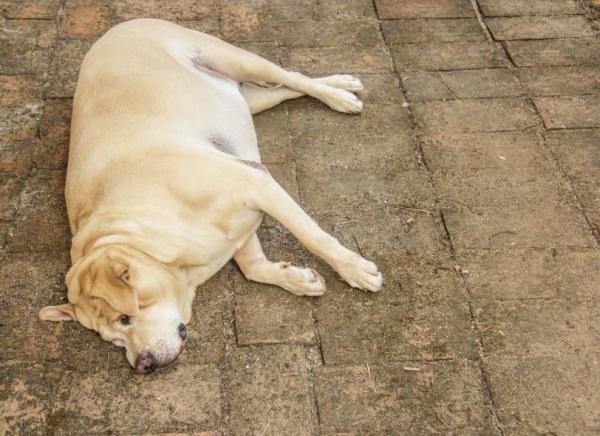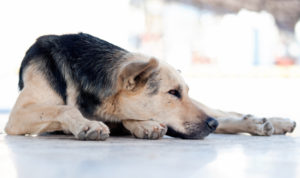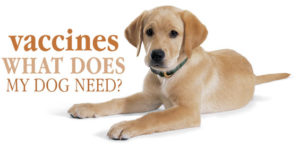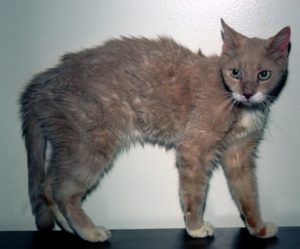
Your dog is getting a little heavier despite being on his normal diet, has a dry haircoat, and has less energy than normal. He may even continue to gain excessive weight despite decreased feeding. He always finds the warm spots in the house and prefers to rest there. If these symptoms sound familiar, your dog may be experiencing Hypothyroidism.
Canine Hypothyroidism is a hormone abnormality usually caused by autoimmune destruction of the thyroid glands. This leads to decreased production of the active thyroid hormone in the blood. It is easy to underestimate the importance of thyroid hormone, although it has a role in almost every body system. Decreased thyroid levels often cause dry or brittle haircoat, hair loss, lethargy, weight gain, heat-seeking behavior, and sometimes seizures or other neurologic abnormalities.
Hypothyroidism tends to occur in middle-aged to older dogs, but can be seen at any age. Large breeds are more commonly affected, particularly the Labrador Retriever, Golden Retriever, and Doberman, but also affects smaller breeds such as the Cocker Spaniel, Dachshund, and Miniature Schnauzer. However, any breed can be affected by Hypothyroidism.
Diagnosis of Hypothyroidism is made by consideration of the symptoms the dog is experiencing, an examination, and a blood test. This blood test is run in-house at Advanced Veterinary Care with results available in as little as an hour.
Hypothyroidism is treated with a synthetic thyroid hormone oral medication, given twice a day. Adjustments to the original dose may be needed, so follow-up blood tests are very important. In most cases, the patient’s one-month follow-up blood test shows adequate dosing. Occasionally, supplementation of the thyroid hormone can lead to Hyperthyroidism, which some dogs experience as excessive panting, pacing, or gastrointestinal disturbances. This is usually easily remedied by an adjustment of the oral medication.
Once the thyroid levels are adjusted, many dogs experience appropriate weight loss, increase in energy, improvement in haircoat, and improvement in general well-being. Many owners are amazed at the difference treatment can make in their dog, reporting that they are “back to their normal self.”
If your dog is experiencing any of the signs, have him evaluated and tested for Canine Hypothyroidism. Appointments can be made at 575-388-1503.




